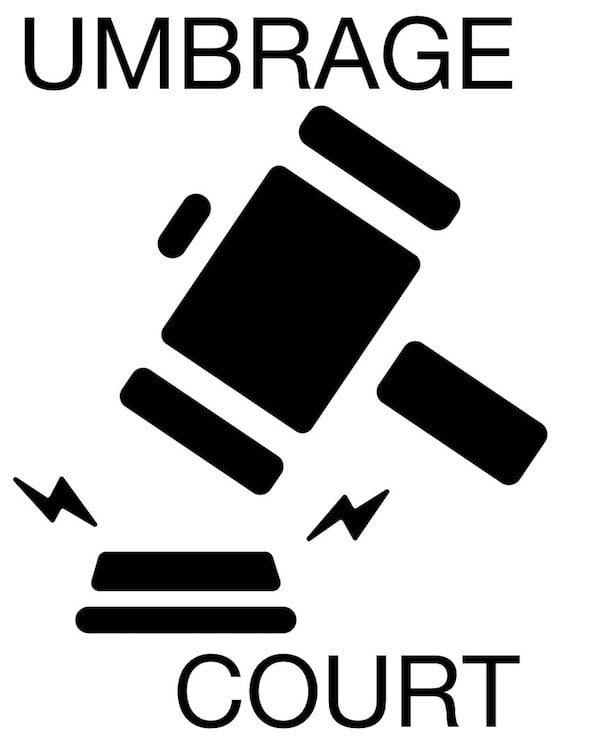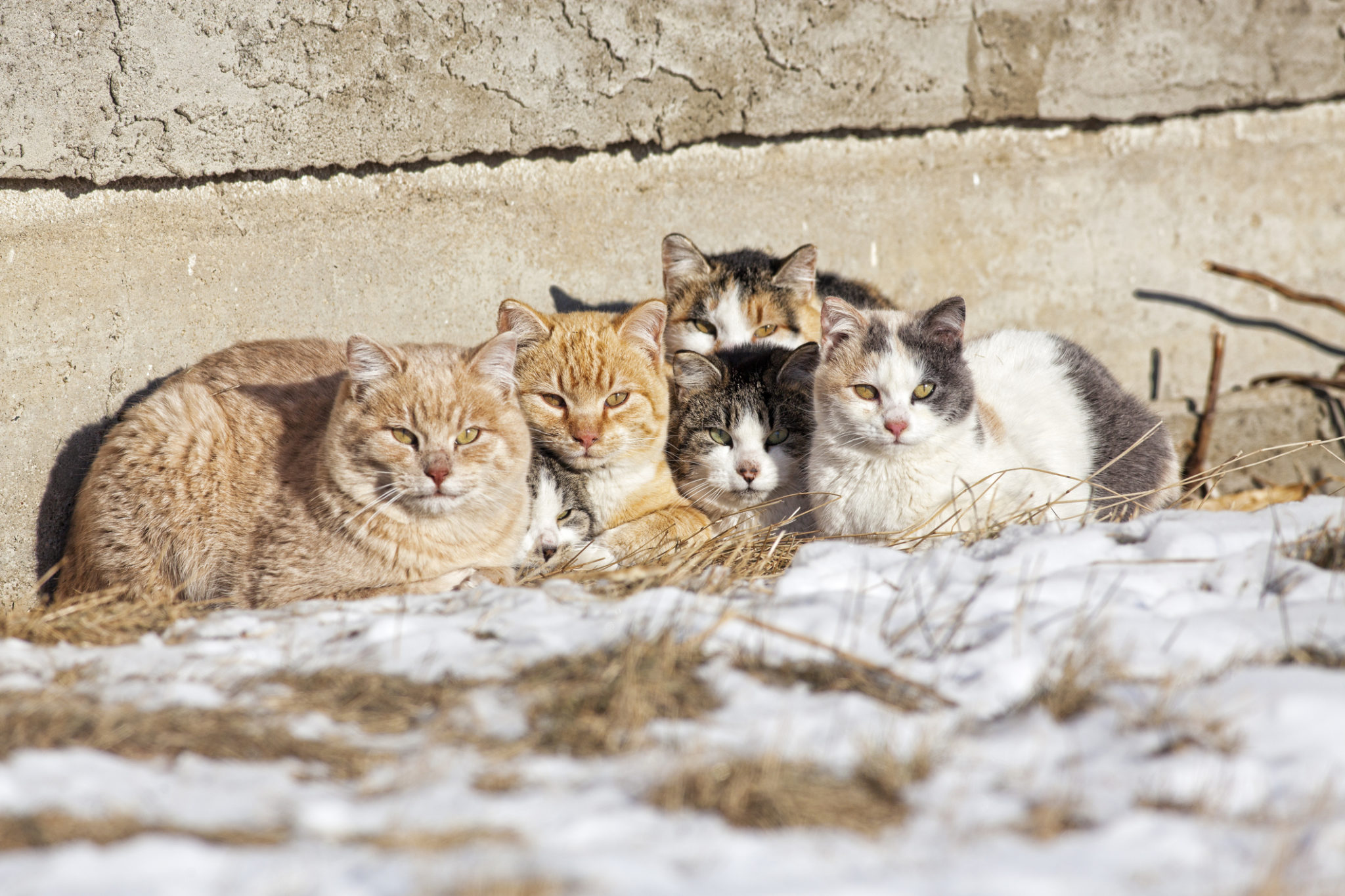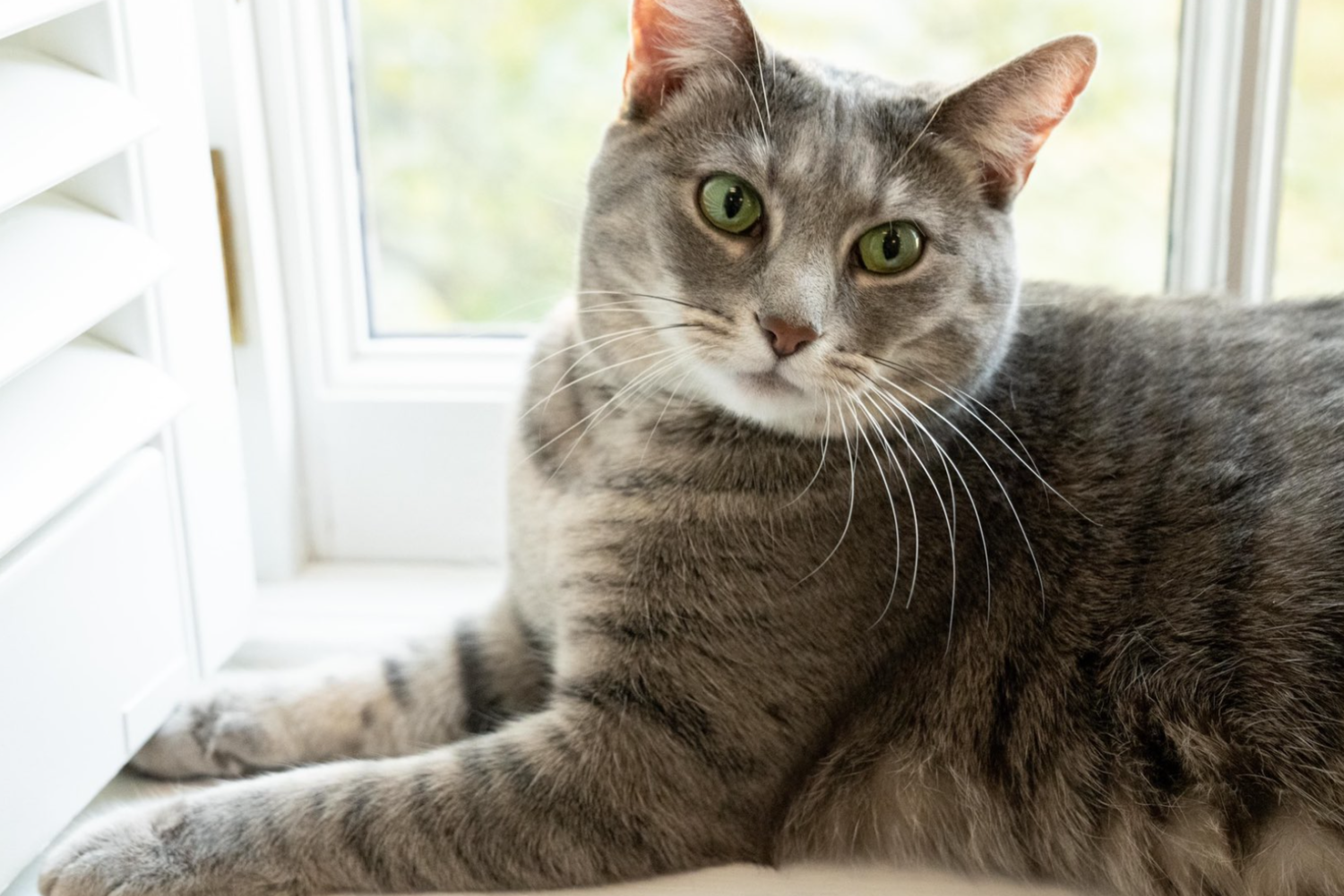About Umbrage Court
Umbrage Court adjudicates the extremely minor problems of urban living and strives to bring clarity to the Urban Compact. If you have business before the court, please email [email protected].
Comes now a citizen with a complaint for Umbrage Court:
Dear Umbrage Court Judge Beaujon:
If you know your neighbor leaves out food for alley cats, but you hate them because they throw up in your yard, rip holes in your patio furniture, and tear up your vegetable garden, is it ok to poison them?

I. Factual Background
God, have I ever fantasized about poisoning cats. Your judge’s antagonists were domesticated and lived with me for more than a decade, at the cost of a big chunk of my vinyl record collection (severely damaged by one of the little twerps who thought they made a dandy scratching post), several pieces of furniture (ditto), and a new paint job in my family room (they kicked up litter onto fresh paint I mean seriously WTF who does that). The return on my investment of time and love was extortionate veterinarian bills and no appreciable affection from the little beasts. After I outlasted them, I finally convinced my partner to try a dog, and now we live with an animal who actually likes us. Outside the home, feral (or “community”) cats can be more than annoying: One study (which is furiously contested by some cat advocates) estimates that free-ranging cats kill billions of birds and other mammals every year. Their claws carry bacteria that can kill you or any other living thing within hours. Counterpoint: Cats are kind of cute. Counter-counterpoint: They’re incapable of love.
II. Analysis
So stipulated: I’m not exactly impartial when it comes to liking cats. But when it comes to killing them, let me be clear: YOU MAY NOT DO THIS. Poisoning cats is VERY MUCH ILLEGAL. Seriously, you could go to jail or lose your job, and you’ll probably end up on the internet in some way you didn’t anticipate. But more important, killing animals around your house is a gross violation of the Urban Compact, the unwritten code that allows us to live closely in non-rural areas. You may not think it’s immoral to ice feral cats, but I assure you that many of your fellow citizens will disagree.
The first thing you should do is try to figure out which of your neighbors is feeding the cats, says Lauren Lipsey, the vice president of community programs at the Humane Rescue Alliance, and “come to a joint and shared resolution.” If such an agreement proves elusive, this court directs you to redirect your energies to: 1) making sure the cats are spayed or neutered; and 2) taking measures to discourage them from visiting your backyard. Let’s take those steps in order.
The District subscribes to the philosophy of “Trap-Neuter-Return.” Cats that have been neutered will sport a notch on their left ear. If the cats bedeviling you haven’t been neutered, you can borrow a trap from the Humane Rescue Alliance’s CatNIPP program. Haul in your captive for a free snip (for District and Prince George’s County cats) and $45 for cats from other jurisdictions. If this is a bigger project than you can take on, contact Humane Rescue Alliance.
Now, how to keep their sterile butts out of your yard? This year, try planting lavender and Plectranthus caninus (the “scaredy cat plant”) in your garden, and spray your outdoor furniture with vinegar to keep the cats away. And there’s no law against keeping a completely bonkers water pistol handy.
III. Conclusion
Just as it would be inadvisable for you to take on Washington’s deer population on your own, the Urban Compact requires you to blunt your Wild West impulses and think about the overall good of the neighborhood. Poison could have unintended effects beyond the cats, and not to beat this drum too hard, but it is ILLEGAL TO POISON FERAL CATS. There’s a system in place. If you don’t think it’s the best system, work within proper channels to influence change. Otherwise, use it.
ABOUT UMBRAGE COURT
Umbrage Court adjudicates the extremely minor problems of urban living and strives to bring clarity to the Urban Compact. If you have business before the court, please email abeaujon@washingtonian.com.




















